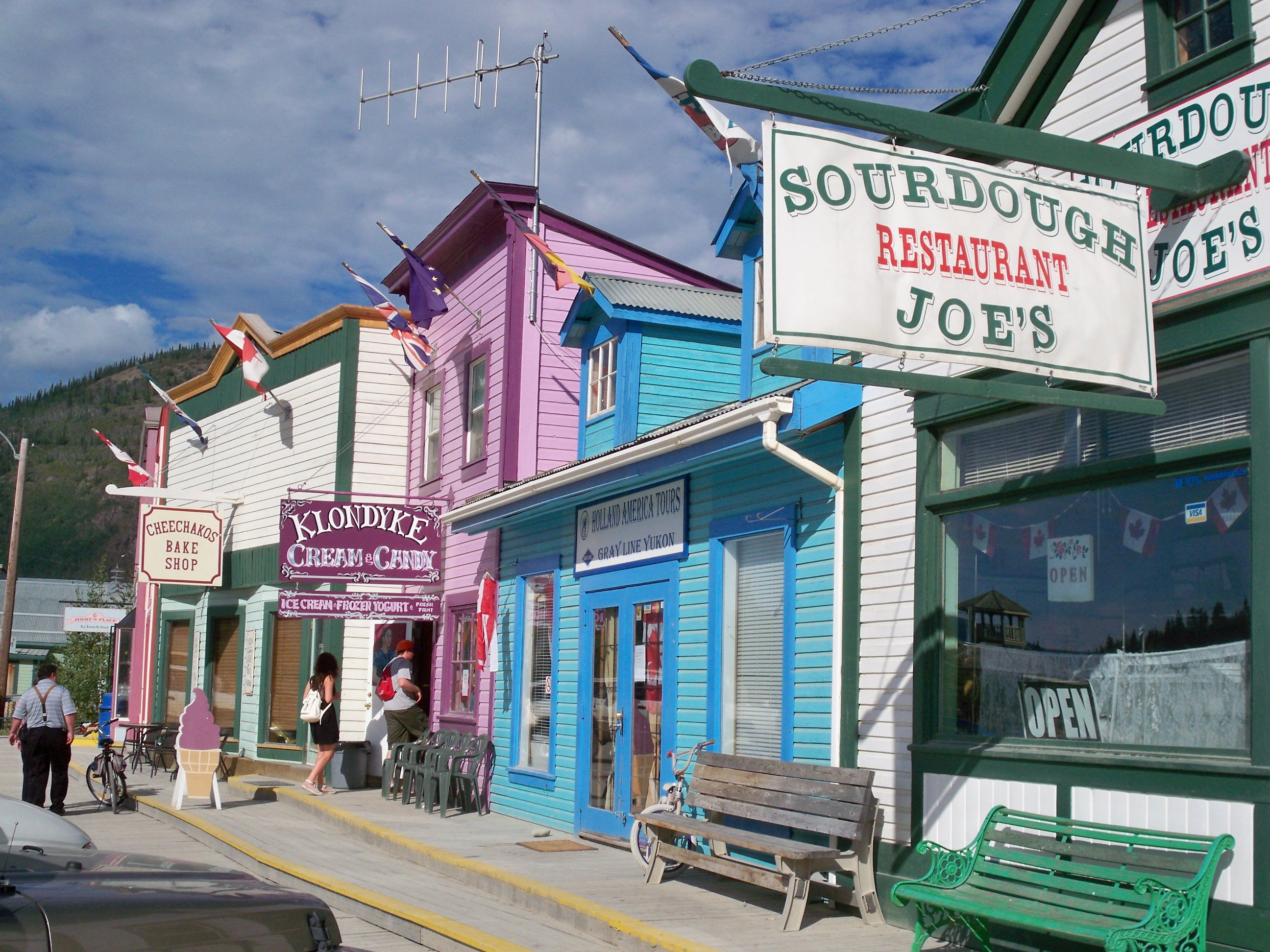Offered for the first time during Spring 2018, this new class provides an opportunity for a limited number of students to participate in authentic field research experience in the North American Arctic! Focusing on three field locations, students will participate in a 21-day camping/road trip in Alaska and Canada's Yukon and Northwest Territories
APPLICATION DEADLINE: November 8, 2017
FIND OUT MORE AND ASK QUESTIONS! October 27, 2017, 2:30-3:15 PM, in the main lecture theater of the new Coastal Biology Building
Course structure:
- Students register for 153A, B, and C during Spring 2018. While the class is 15 credit hours, the meeting schedule during Spring quarter makes it possible to take additional classes simultaneously
- During Spring, we will meet twice a week (MW) in CBB (95 minutes per meeting)
- There will be a mandarory 3-day camping trip May 11-13, 2018
- The field component will begin in Whitehorse, Yukon Territory, Canada, on June 19, and end in Whitehorse, Yukon Territory, Canada, on July 9
- Course fees will be $2570, with limited scholarship opportunities (TBA). Fees will cover the cost of camping equipment, food, accommodation, road transportation, and course materials, but do not include the cost of flights to/from Whitehorse
Interested students should fill out the application form by 8 November. Interviews will be held no later than 10 November, so that students can know whether they have been selected to participate prior to registration for Winter classes.
Space for Spring 2018 is limited to 12 students! Apply here.
The googleMaps below *almost* describe the route that we will take. Yukon Hwy 9 is closed in the winter, which means that google will not allow me to include it in the route (this is indicative of the type of challenges that one always faces while working in the Arctic!), although we will drive over this highway (also known as Top of the World Highway) to Dawson City.
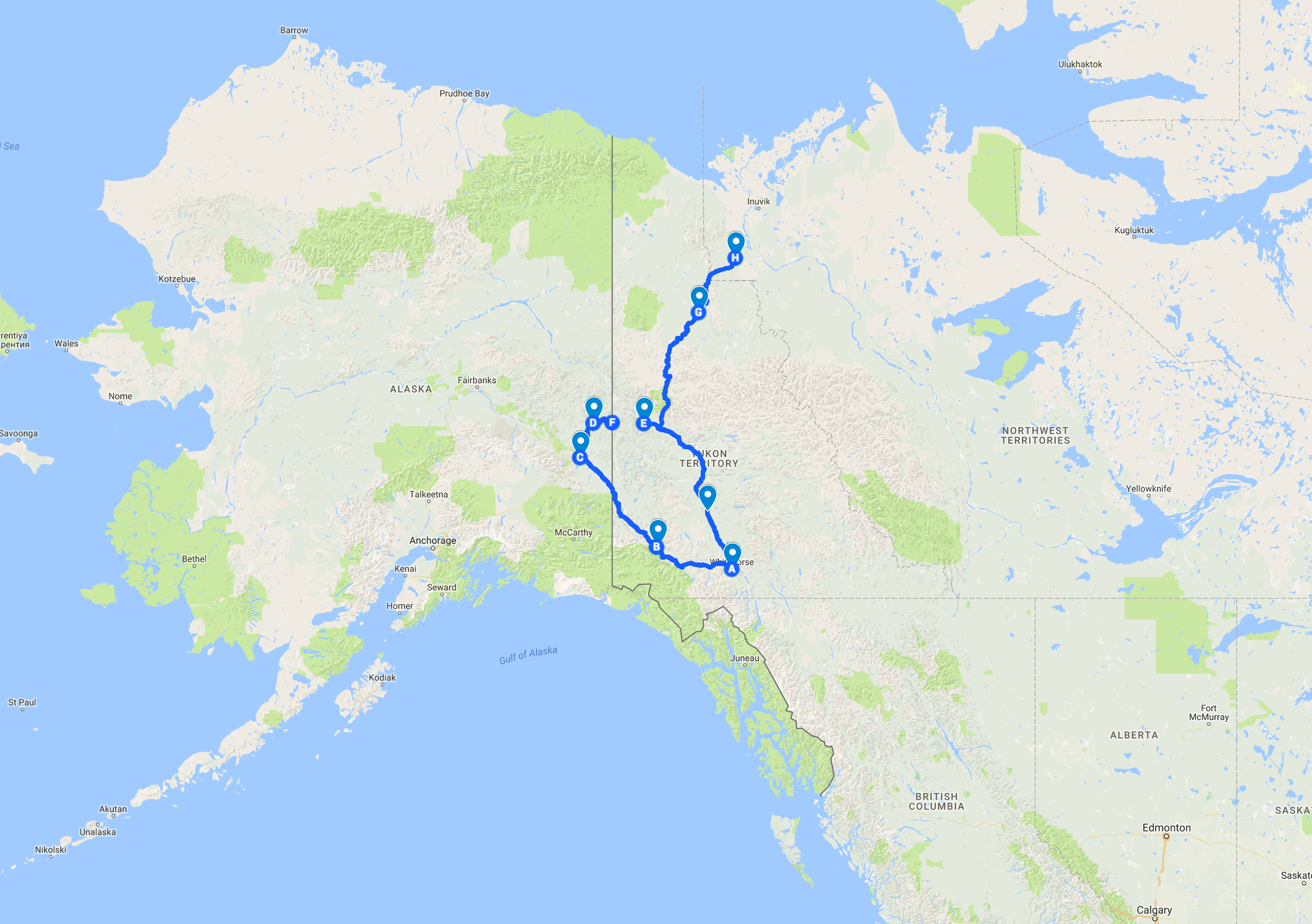
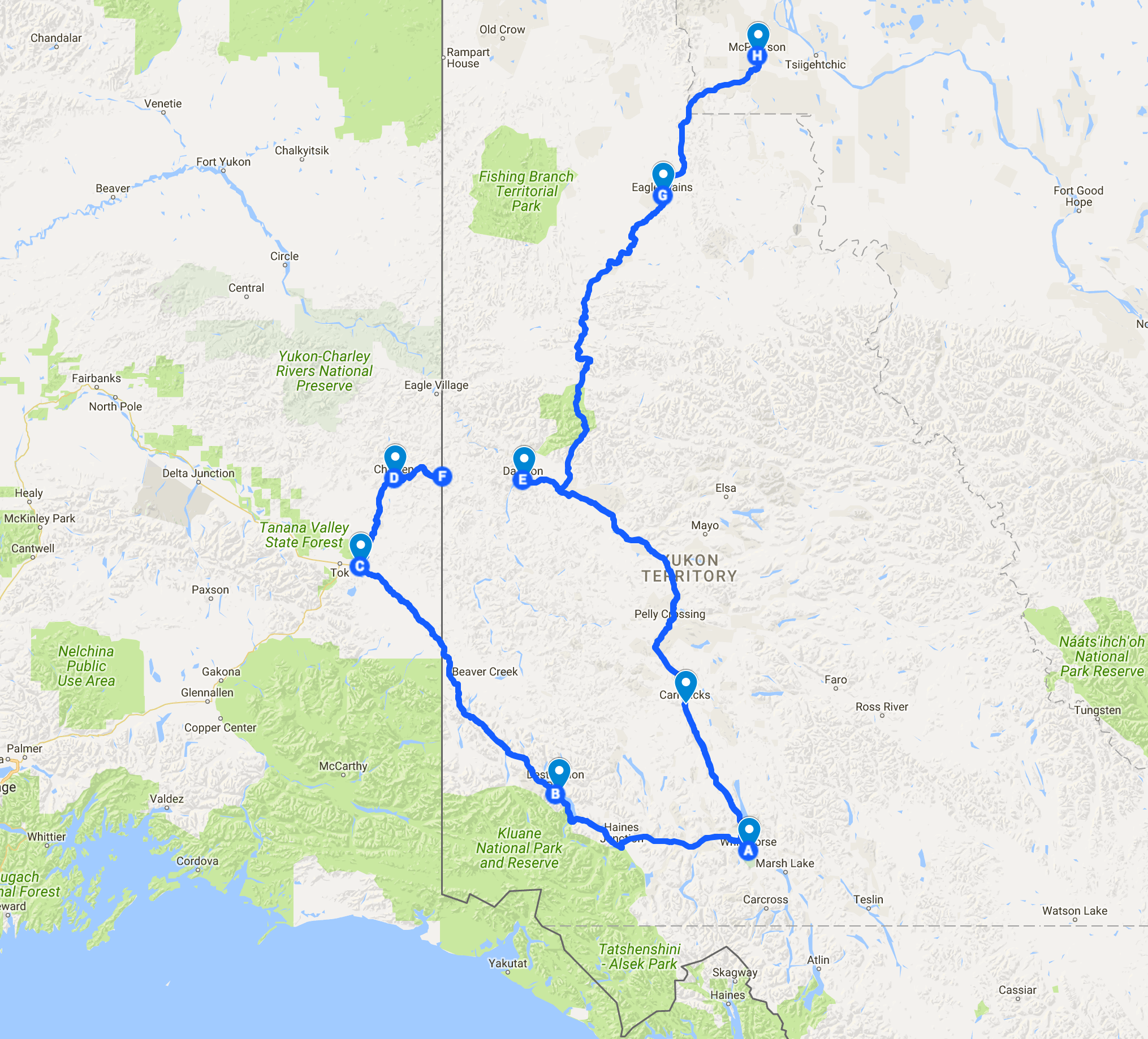
Route and Schedule:
June 19 - Meet in Whitehorse, YT We will spend the first night camping at the Yukon Hot Springs campground, about 30 mins outside of Whitehorse. |
 |
June 21-23 - Kluane Lake Research Station, the Arctic Institute of North America. Geological processes associated with glacial advance and retreat. First assignment. |
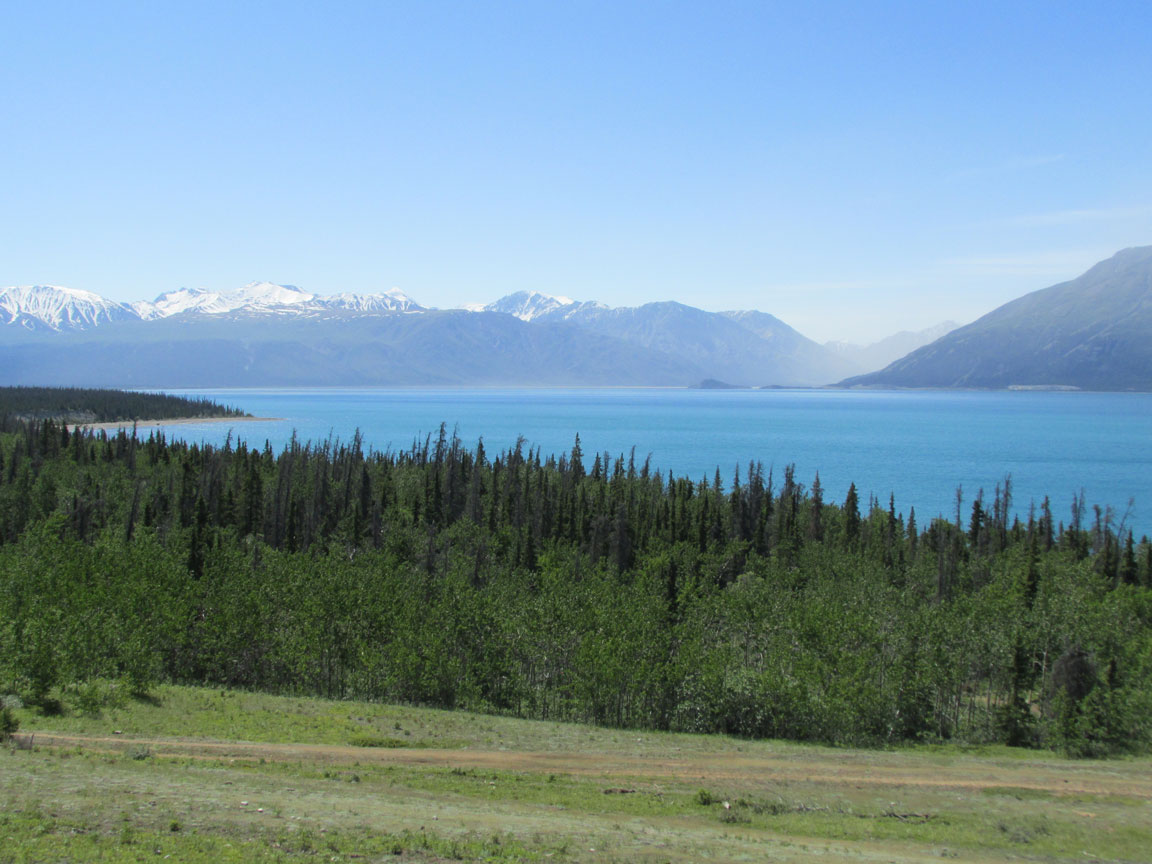 |
|
At the Kluane Lake site, we will hike Sheep Mountain for a high view of the Slims River, Kluane Lake, and the glacier that feeds them both. Our first research project will investigaate local dynamics of glacial melting and how this has changed over recent geological time. |
June 24 - We will cross the border into Alaska at Pelly Crossing and head north to Dawson City, Yukon via the Top of the World Highway. We'll stop at Tok and Chicken, where we'll check out past and present gold mining operations (and camp somewhere along the way) |
 |
June 25 - We will arrive in Dawson City via the Top of the World Highway. crossing the border at Poker Creek, AK (pictured to the right). |
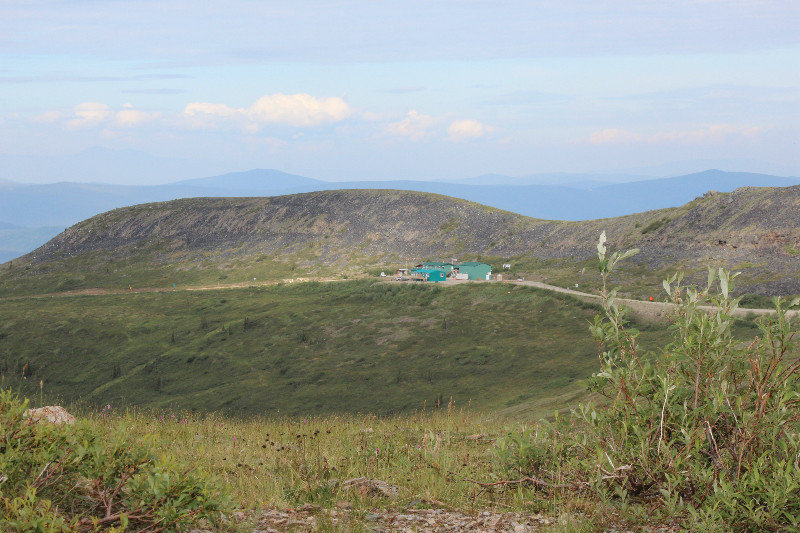 |
June 26-29 - Dawson City, Yukon. We will spend two days learning local human history, and visit active gold mines to learn about geology, ice age paleontology, and the ecological impacts of gold mining. Our second assignment will come from our work in the Dawson area. |
 |
|
Never fear, it will not all be work. You will have some time to explore Dawson City on your own, which is highly recommended.... |
June 29-July5 - From Dawson, we will travel North up the infamous Dempster Highway, camping and hiking at Tombstone, crossing the arctic circle, and descending the mountains into the community of Fort MacPherson (assuming the weather holds). |
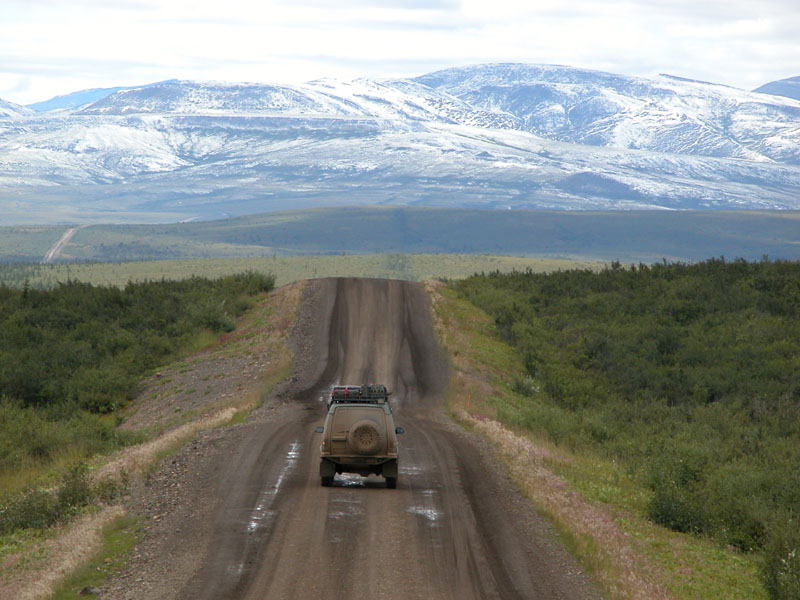 |
|
The Dempster is a beautiful place, despite the mosquitoes, which can drive even the calmest person crazy. Be certain to bring your headnet. Even if you're a hoary marmot. |
July 6-8 - We will make our way back to Whitehorse, where we will return to the Hot Springs campsite (yes, there will be a chance to try out the sprints) for the last day of class, presentations, consuming the last of the food, and cleaning the trucks. You might even get to take a hot shower. |
 |
July 9 - Clean up and check out in the morning! You're free to head back to Santa Cruz, or stick around and travel on your own.
(The photo to the right is from our 2016 expedition -- we found a frozen bison skull in the much near Dawson City, and couldn't retrieve it. Will it be there when we arrive in 2017?) |
 |
Yes! As long as you:
1. Are interested in arctic ecology and environmental change
2. Are capable of completing day-length hikes with elevation changes in excess of 3000 feet.
3. Are willing to get dirty, sleep in a tent for nearly three weeks, not shower for several days at a time.
4. Don't get carsick (we spend A LOT of time in the trucks) and can sleep without it being dark (this is the Arctic in the summer, after all)
5. Are willing to risk interactions with grizzly bears and to participate in training as to how to deal with such interactions, and can act as a responsible member of a team in bear country
6. Don't mind billions of mosquitoes landing on your face and hands. And biting.
7. Are interested to build skills in scientific communication; this will be a writing- and presenting- intensive course, in addition to building knowledge of ecological and environmental processes in the Arctic.
8. Can relax and have a good time in a not-always-predictable situation.
TO APPLY:
Please apply by 8 November 2017 by filling out this form. Be sure to type your email address correctly so that we can be in touch if you are selected for an in-person interview.

